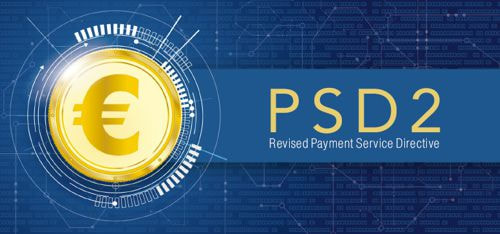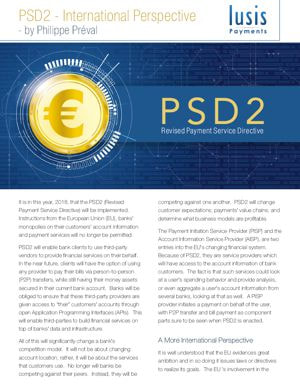 It is in this year, 2018, that the PSD2 (Revised Payment Service Directive) will be implemented. Instructions from the European Union (EU), banks’ monopolies on their customers’ account information and payment services will no longer be permitted. PSD2 will enable bank clients to use third-party vendors to provide financial services on their behalf. In the near future, clients will have the option of using any provider to pay their bills via person-to-person (P2P) transfers, while still having their money assets secured in their current bank account. Banks will be obliged to ensure that these third-party providers are given access to “their” customers’ accounts through open Application Programming Interfaces (APIs). This will enable third-parties to build financial services on top of banks’ data and infrastructure. All of this will significantly change a bank’s competition model. It will not be about changing account location; rather, it will be about the services that customers use. No longer will banks be competing against their peers. Instead, they will be competing against one another. PSD2 will change customer expectations; payments’ value chains; and determine what business models are profitable. The Payment Initiation Service Provider (PISP) and the Account Information Service Provider (AISP), are two entries into the EU’s changing financial system. Because of PSD2, they are service providers which will have access to the account information of bank customers. The fact is that such services could look at a user’s spending behavior and provide analysis, or even aggregate a user’s account information from several banks, looking at that as well. A PISP provider initiates a payment on behalf of the user, with P2P transfer and bill payment as component parts sure to be seen when PSD2 is enacted. A More International Perspective It is well understood that the EU evidences great ambition and in so doing it issues laws or directives to realize its goals. The EU ‘s involvement in the deregulation of telcos has produced spectacular outcomes. Huge operators have transformed old national monopolies in national amphi-polies, tri-polies or tetra-polies. In the meantime, the telco industry itself has been badly damaged and is now dying. Today, Europeans buy phones via the United States (US) or Korea and network switches in China or the US. As to bank services, and with no directives, it is very possible that Citibank, Bank of America Corporation (BAC), and Chase Bank will do better more quickly if they may take advantage of the frantic activity Europeans are going to create in their homelands. No matter what, it is clear that the mandate is for creation of a more competitive bank environment, thereby creating a global marketplace for European bank services. Comments are closed.
|
lUSIS nEWSThe latest company and industry news from Lusis Payments. Archives
June 2024
Categories
All
|


 RSS Feed
RSS Feed